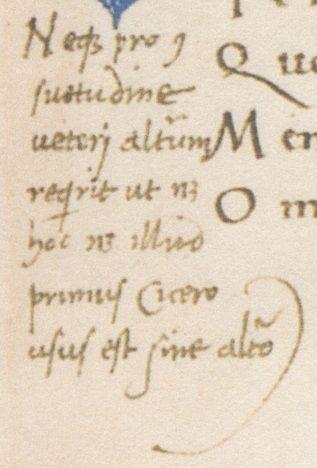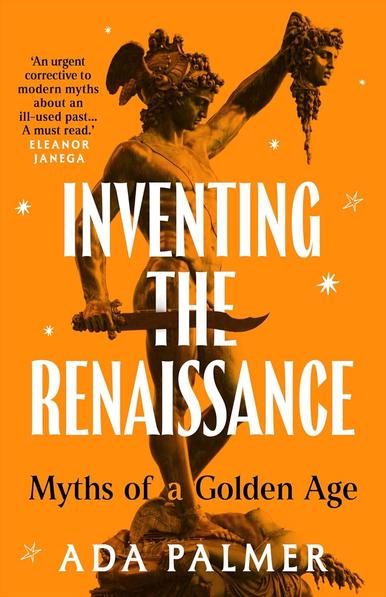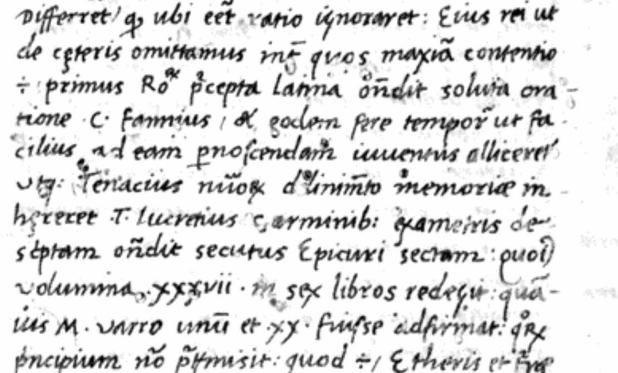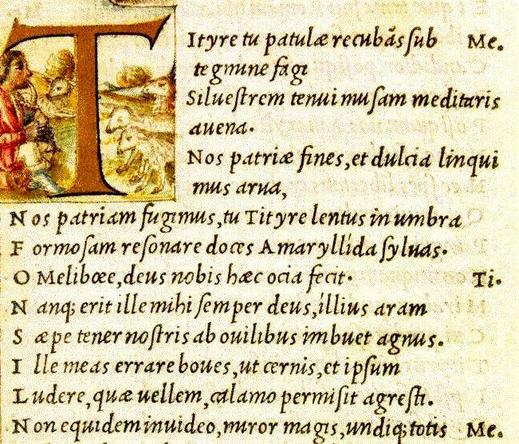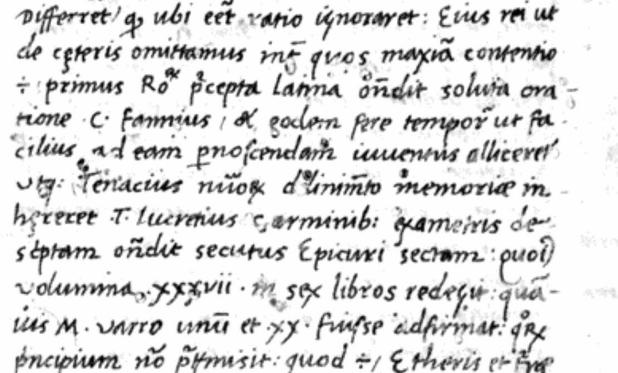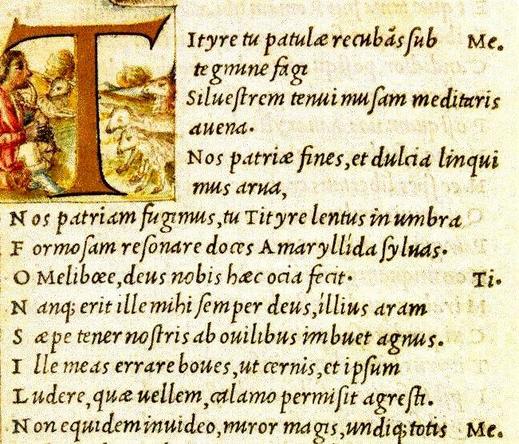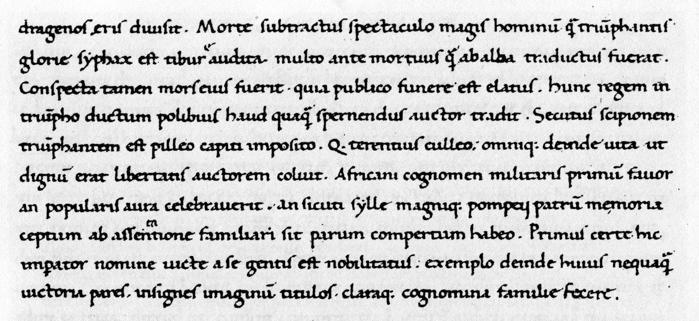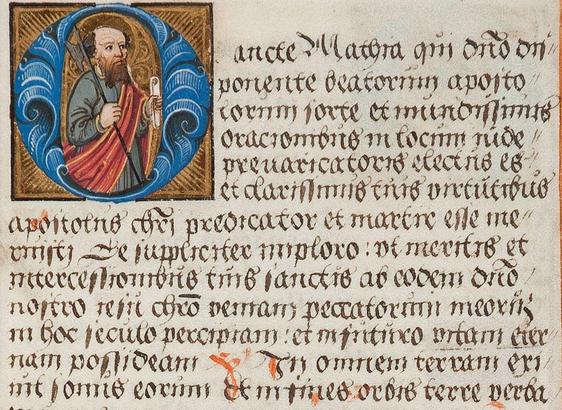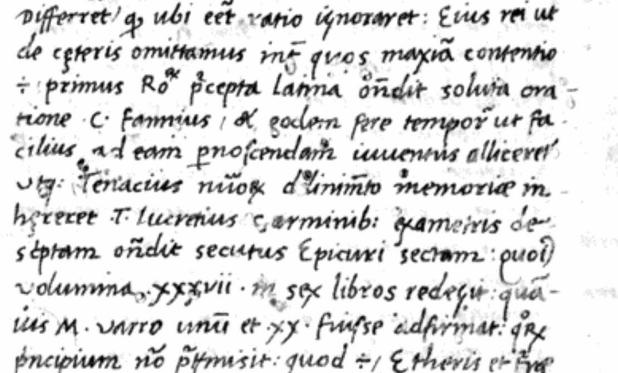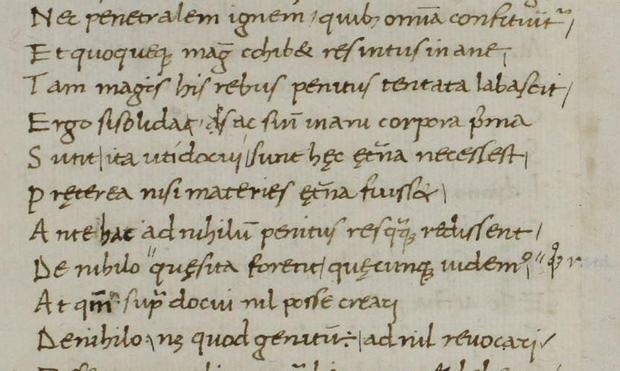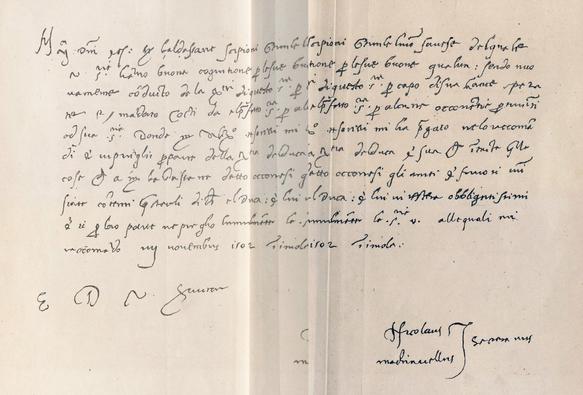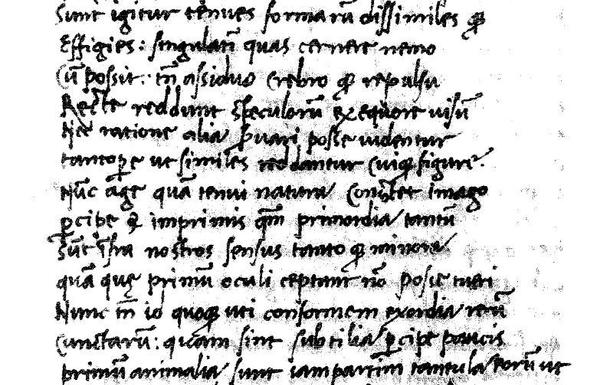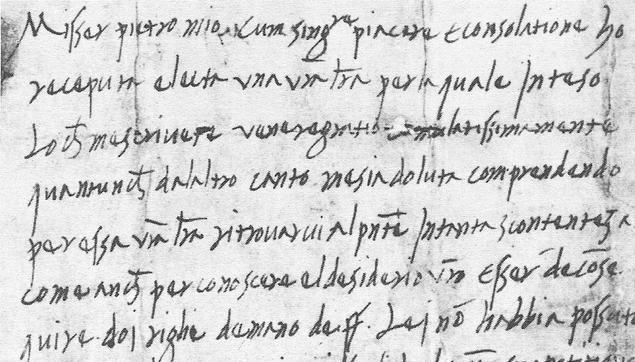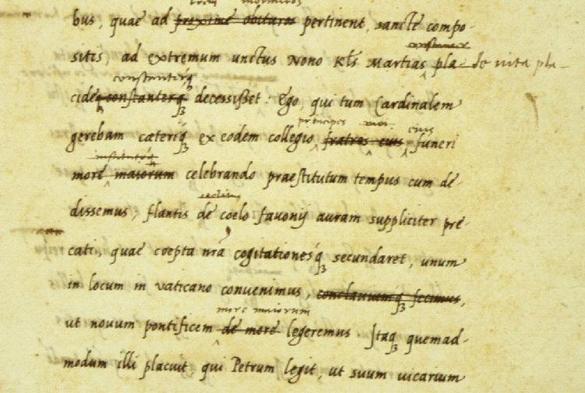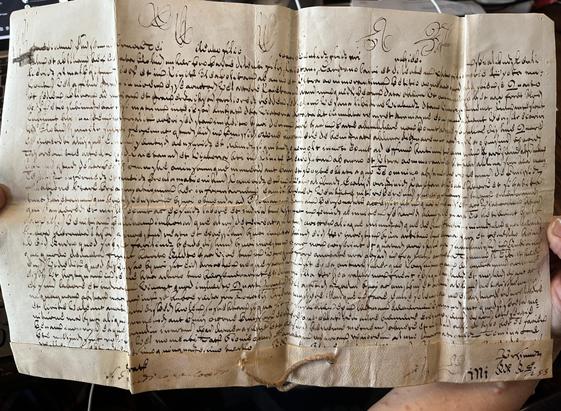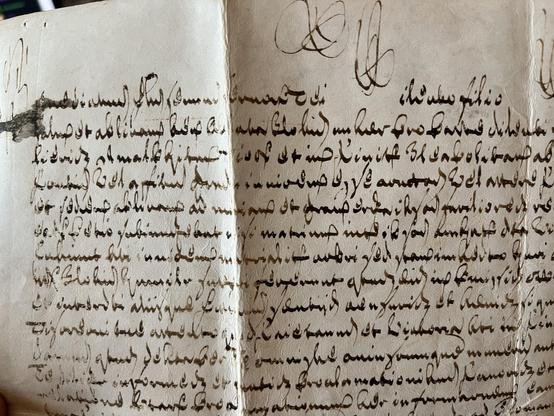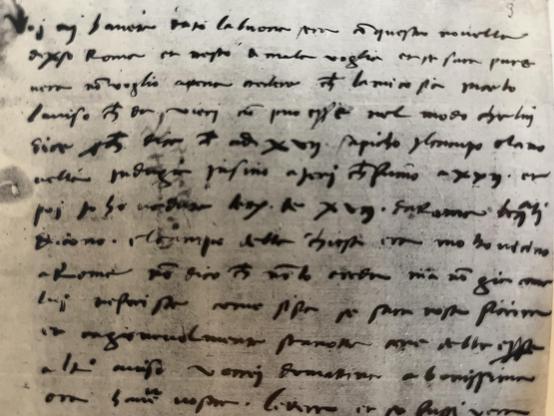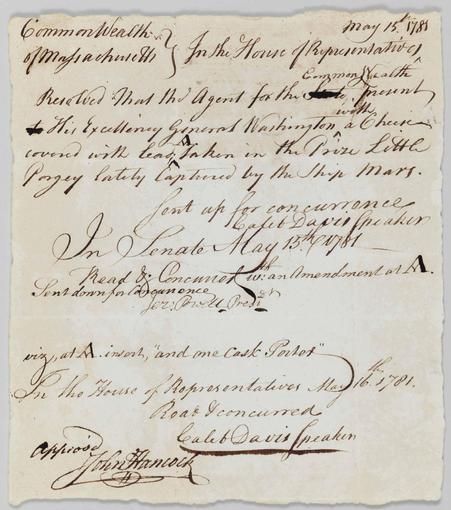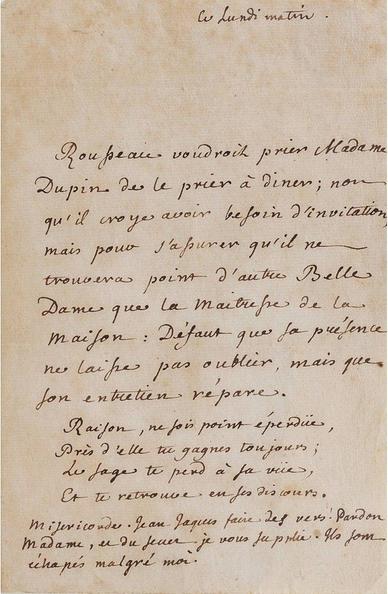It’s #HandwritingDay so I thought I’d share a thread about Renaissance handwritten documents I worked with in the research that led to “Inventing the Renaissance,” and the best and worst scripts I’ve ever seen. 1/?
(Continuing countdown to the release of my *absurdly fat* *absurdly orange* book!)
Compared w/ many historians, I work on the easiest possible old scripts. Why? My Italian Renaissance classicist dudes copied out the Cicero, Ovid etc. that Italian printers used to first print them, so their handwriting was the basis for the typefaces that evolved into Times New Roman & its ilk 2/?
Poggio Bracciolini, famous for rediscovering Lucretius as he trekked across the Alps hunting for manuscripts while unemployed (his papal boss got de-poped) copied so many major manuscripts that his hand basically is what our era uses as standard newspaper script, as easy on the eye as it gets 3/?
Over years working on one scholar or group you learn to recognize their script, which is often how manuscripts get “discovered.” When you read about a “discovered” manuscript, it wasn’t hidden Indiana Jones style, it was in a library in Unidentified Documents Box #113 https://buff.ly/4gdD7Dc 4/?
My dissertation adviser Jim Hankins works a lot on Leonardo Bruni, & is always recognizing unsigned documents, to librarians’ mixed joy & chagrin, because UnknownPage #153 only has to be insured for a few bucks, while *identified* letters can be worth $$$ and drive up library insurance costs 5/?
The Lucretius in Machiavelli’s hand that was core to my dissertation doesn’t bear M’s name, so sat anonymous in the Vatican for ages until a scholar recognized his handwriting. Another lost M work was recognized recently by someone who knew his *grandson’s* handwriting 6/? https://buff.ly/4gaqwkf
Only many, many hours with the same hand gets it into your head enough to recognize it, enough that it comes only over decades, and often a younger scholar will need to grab a pic of someone’s hand and send it to a retired mentor saying, “Is this Pomponio Leto?” and breathlessly await the reply. 7/?
Identifying handwriting was one of the first digital humanities things scholars tried using computers for, and when I was a PhD student (over a decade before LLMs) there were projects teaching computers to read the specific scripts of one region/period, usually a couple decades. Why so narrow? 8/?
Handwriting is *hard* and constantly evolved, and it’s still the case that when colleagues of mine work to level up a computer to parse letters from 1550-1600 France, if I give them one from 1497 Italy the computer yields gibberish worse than when Google Translate first debuted. 9/?
Sometimes hard scripts were deliberate. Secretaries in different offices, especially royal courts or the Vatican, would develop & learn deliberately difficult unique scripts to make documents harder for spies to read, and harder to forge, something between a code and a watermark. 10/?
The *worst* handwriting I know is Lorenzo de Medici’s. Scratchy nightmare explosions like someone coated pine needles in ink and dropped them on the page. It’s so bad scholars have been struggling to transcribe his letters to do a “Complete Letters” edition since the mid-1970s and aren’t done! 11/?
Mercifully Lorenzo dictated many of his letters to secretaries, but his own handwriting is awesome evidence of disability history: Lorenzo had the family’s hereditary debilitating arthritis (“gout” meant many things at the time) + probably acromegaly (bone overgrowth) 12/? https://buff.ly/4axdTyo
As for the *best* handwriting, once at Harvard I was flipping through a box of random letters and there was a receipt candle wax in the most luscious handwriting I’d ever seen, art nouveau elf script like sweet syrup to the eye! It was art! Art! Who was it?! I looked down to the signature, it was…
…John Hancock.
Because some people actually *do* deserve their reputations. 14/?
In general, the Eighteenth Century has Europe's most beautiful handwriting. Here's a taste of my favorite before Hancock took the title, the gorgeously delicate script of the decidedly un-delicate Jean-Jacques Rousseau 15/?
The many years it takes to learn to read a script, or recognize a specific author’s hand, is one of the major reasons that it takes a long time to train a historian, and we need to offer special paleography courses where sometimes only a single student is training on a certain specific script. 16/?
Will computers eventually help more? Likely yes, but many people are shocked to learn how many *millions* of pages of historic documents have never been looked at in modernity let alone scanned & put online, and how far we are from computers even being able to *transcribe* let alone translate. 17/?
So next time you feel bad about your handwriting, remember famous figures have been leaving us terrible, monstrous handwriting for centuries, so you and Lorenzo are in good company! 18/18
More tales of the archives & historians' craft coming in Inventing the Renaissance! https://buff.ly/4j6qkoS

